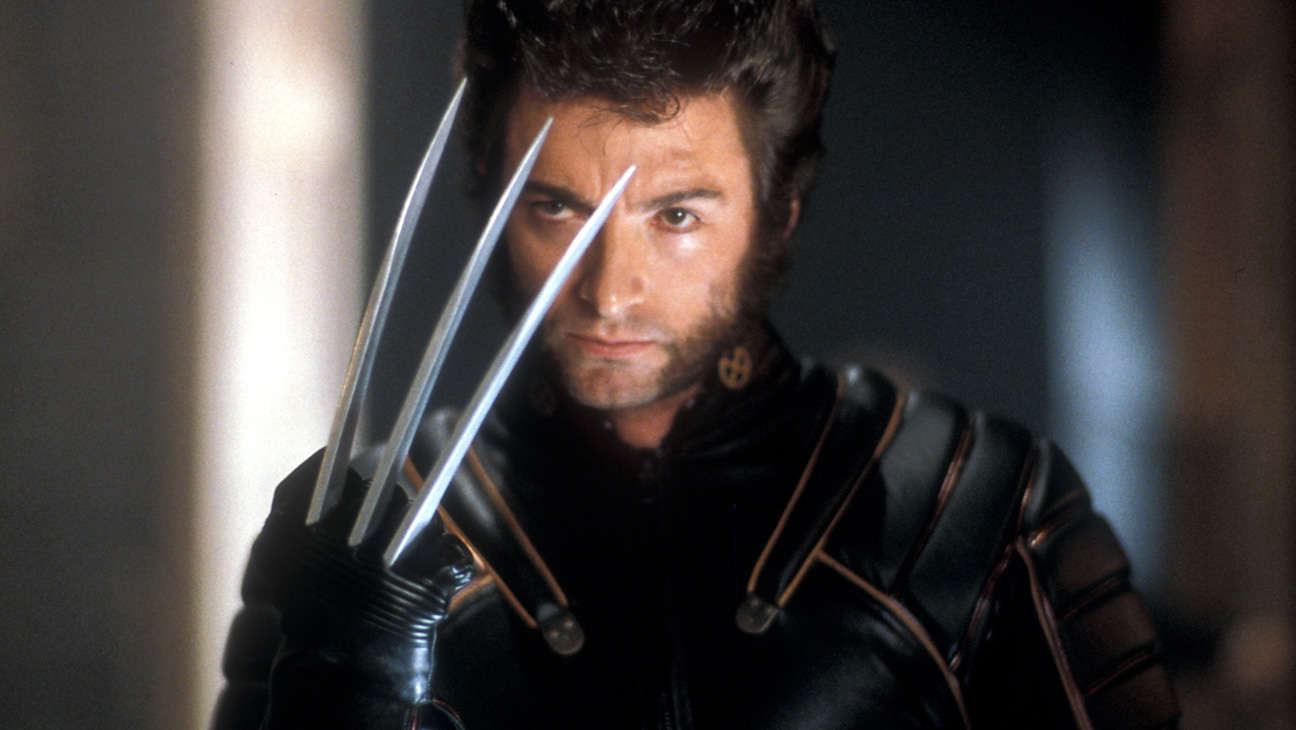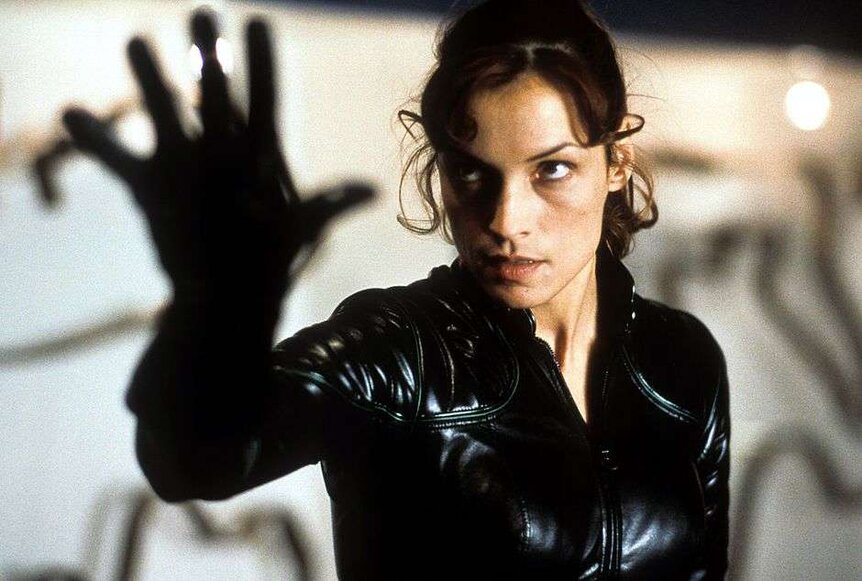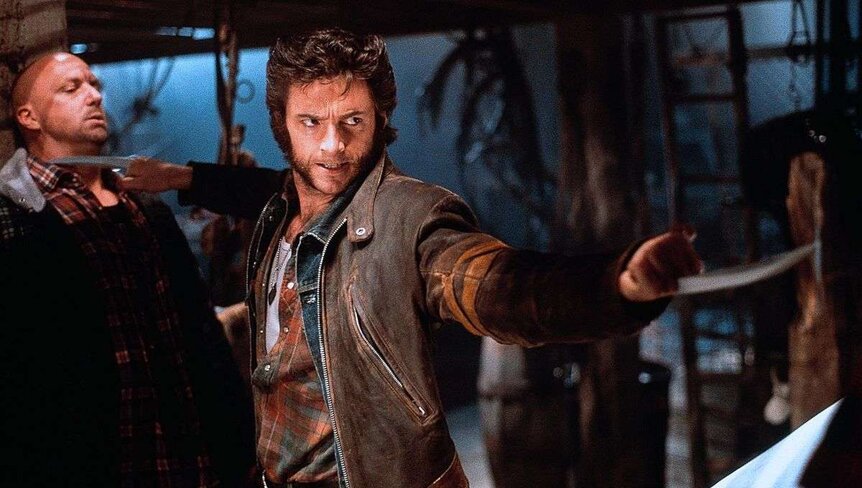Create a free profile to get unlimited access to exclusive videos, sweepstakes, and more!
This Week in Genre History: X-Men makes mutants a superpower at the box office

Welcome to This Week in Genre History, where Tim Grierson and Will Leitch, the hosts of the Grierson & Leitch podcast, take turns looking back at the world’s greatest, craziest, most infamous genre movies on the week that they were first released.
On the pop culture front, it’s been a strange summer — one in which we’ve been completely devoid of big comic book films and, specifically, massive Marvel movies. It’s easy to forget now, but summers used to be like this all the time, filled with other kinds of action flicks and event films but not so much invested in costumed do-gooders. But the summer of 2000 started to change that — and it was all thanks to one movie. On July 14 of that year, X-Men came out. Neither summer nor Marvel has ever been the same since.
The film helped make big stars out of its principal cast members, including Hugh Jackman, who played Wolverine, and James Marsden as Cyclops. Before X-Men, Ian McKellen was merely a revered theater actor who, overnight, became synonymous with the treacherous Magneto. (He’d soon become even more famous as Gandalf in the Lord of the Rings films.) And Patrick Stewart, a fellow decorated theater veteran, flush from his success in Star Trek: The Next Generation, would go on to even greater prominence as the valiant Professor X, who runs a school for gifted youngsters. But just as important, X-Men made these fictional mutants themselves movie stars, setting in motion a successful franchise that was a precursor to the Marvel Cinematic Universe. This was the first time we saw Wolverine flash his metal claws or Magneto levitate. But they’d soon be staples at the multiplex.
Not bad for a franchise that was launched by Stan Lee primarily because he was desperate to come up with new comic book properties. Back in 1963, an idea occurred to him: “Spider-Man was bitten by a radioactive spider, the Fantastic Four had been hit by cosmic rays ... So I said, ‘I’ll make it easy for myself — what if they’re just born that way? What if they’re mutants?’”
Thirty-seven years later, those mutants were ready for their closeup, paving the way for a lot of other superheroes to crash the silver screen.
Why was it a big deal at the time? Hollywood had wanted to make an X-Men movie for a long time. In the mid-1980s, Stan Lee pitched an adaptation to Aliens director James Cameron, who suggested that they consider newcomer Kathryn Bigelow for the job. (“I thought this was going to be a game-changer!” longtime X-Men comic book writer Chris Claremont recalled in 2019. “Imagine Kathryn Bigelow directing a project that would have [featured] the epitome of a strong, dynamic, progressive female cast.”) But after several false starts, Fox finally greenlit X-Men with The Usual Suspects director Bryan Singer, who had previously worked with McKellen on the 1998 thriller Apt Pupil.
Singer and the producers assembled an impressive cast to tell the story of Wolverine’s recruitment into the X-Men as they do battle with Magneto’s Brotherhood of Mutants. (Halle Berry, who played Storm, had been in Boomerang, The Flintstones, and Bulworth, while Famke Janssen portrayed the evil seductress Xenia Onatopp in Goldeneye before signing up to be Jean Grey.)
But for all the script’s life-and-death tension, the stakes were even higher offscreen. In 1996, Marvel Entertainment Group had filed for bankruptcy, a process that included gutting a third of its staff. Needless to say, the company was in terrible shape. Movies based on Marvel characters, like Howard the Duck and The Punisher, had flopped. Outside of Blade, their cinematic ambitions had largely fizzled. So a lot was riding on X-Men, especially after a 1990s cartoon helped familiarize general audiences who couldn’t tell a Mystique from a Rogue.
Even so, X-Men was not entering a marketplace that was especially welcoming to superhero movies. (Three years prior, Batman & Robin had effectively killed the genre.) So it was little surprise that producer Lauren Shuler Donner was convinced X-Men would crash and burn. “We had no idea if anybody would see it,” she said years later. “Bryan and I were in the editing room, literally, and we thought, ‘That’s it, we’ll never work again.’”
What was the impact? Donner’s worries were unwarranted. X-Men grossed an incredible-for-its-time $54 million on its opening weekend. (That was then the highest first-weekend gross for a non-sequel or for a film released in July.) It ended up being one of 2000’s biggest hits, earning strong reviews and prompting an even more lucrative sequel, 2003’s X2: X-Men United.
But X-Men’s influence went beyond dollars and cents. By taking a more grounded approach to a superhero film, X-Men had real-world resonance, particularly in its depiction of an ostracized community of mutants who had to band together because humanity had shunned them. In 2014, Stewart summed up the movie’s emotional underpinnings perfectly: “[The franchise] was dealing with a contemporary issue. Concerning prejudice, and the treatment of outsiders, or those who are thought to be different, whether by race or gender or sexuality. That people should be allowed to live and express their individuality in their own way. And should not be victimized for being different.” Long before our popcorn pop culture had a real LGBTQ movement (one that is still ongoing, mind you), X-Men advocated for tolerance and equal rights — all in the guise of an entertaining superhero action movie. It was easy enough to enjoy the film for its cool fight scenes, clever effects, and a playful sense of humor — but that poignant subtext made the proceedings that much more thrilling and affecting.
Of course, the blockbuster also helped make Marvel relevant again: Eight years later, Iron Man would birth the MCU. But even before Tony Stark became a matinee idol, X-Men got audiences stoked for a whole new wave of superhero cinema, starting with 2002’s Spider-Man. After years of seeming unfashionable or niche, comic book movies would start to flex their muscles at the multiplex, laying the foundation for the next two decades of commercial supremacy.
And, for a while, these mighty mutants benefited significantly, too. The original X-Men cast was part of three successful films, and then Fox rebooted the franchise with 2011’s X-Men: First Class, a prequel, which opened the door for X-Men: Days of Future Past and X-Men: Apocalypse. At the same time, Jackman (the franchise’s clear star) toplined his own string of standalone films, starting with 2009’s X-Men Origins: Wolverine and culminating in the Oscar-nominated Logan in 2017. Even Deadpool got in on the fun, mocking his mutant cohorts in two popular R-rated solo adventures.
Eventually, however, that X-Men hot streak started to cool. Last year’s Dark Phoenix was an utter disaster, and who knows if we will ever see the oft-delayed, not-especially-inspiring-looking New Mutants? But now that the franchise has been folded into the Disney empire, which also hosts the Marvel Cinematic Universe, a mutant rebirth may very well be on the way.
Has it held up? Seen through modern eyes, the original X-Men seems charmingly lo-fi in comparison to the sprawling latter-day Avengers epics. (The fate of the entire universe doesn’t hang in the balance, and the good-versus-evil showdown isn’t drenched in CGI.) But the performances are all really strong, and that sense of a makeshift family remains resonant. Even though these characters have been rejected by humanity, X-Men never overlooked their flesh-and-blood vulnerability. The mutants can control the weather or shapeshift or bend metal, but they feel like real people with real insecurities and fears.
That humanness has helped X-Men endure. The first installment wasn’t the most commercially successful — or necessarily the best of the franchise — but everything the series would achieve thematically was established in that 2000 film.
If you need proof, consider Logan, the final time Jackman and Stewart would play, respectively, Wolverine and Professor X. It was a touching farewell because we’d spent so much time with these characters over the years — and because the actors had imbued them with such complexity and deep feeling.
Back in 2000, it would have been hard to imagine the impact these films would have. Around Logan’s release, Stewart recalled what it was like meeting Jackman for the first time. “I was sitting on set the day he arrived to do an audition ... This charming, slender Australian guy came in and he said he was there to audition and he sat down and had a coffee with us and talked,” Stewart said. “They took him away and we thought, ‘What a great guy.’ He came back half an hour later and he said, ‘Well, you guys are never gonna see me again.’”
Boy, was Wolverine wrong.
Tim Grierson is the co-host of The Grierson & Leitch Podcast, where he and Will Leitch review films old and new. Follow them on Twitter or visit their site.
















